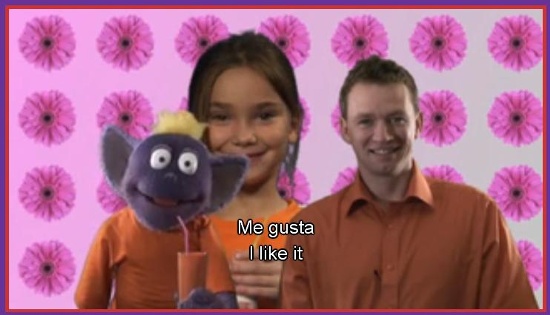Bilingual schools in Andalucía
Wednesday, May 2, 2012 @ 12:04 AM
This is from our friends at Speekee - Spanish for kids

A new sign has gone up in my kids' school. It says: Centro Bilingüe. Bilingual Centre.
Here in Andalucía there is a campaign to convert monolingual schools into bilingual schools, and that second language is, as we might expect, English. Well, it wasn't going to be Swaheli was it?!
A question for you: what is your definition of 'bilingual'? I ask because it looks like the government here is using the word loosely; you do not walk into this particular school to hear English and Spanish being spoken in equal measure. Indeed, you would be hard pushed to hear any English being spoken at all.
But whatever definition we choose to give it, the bilingual schools campaign looks here to stay. So if the teachers don't yet have the high level of our language they need to be able to teach Science in English - and they are trying to do just that at the moment! - it is only a matter of time, evidenced by the fact that students enrolled on a new 'bilingual' teacher training course in Granada are already being sought after by schools.
The Andalucian bilingual schools campaign may not be perfect but it's a big step in the right direction because, as I am sure you are well aware, children retain new language very easily. And they can only benefit from knowing two languages rather than one.
I moved to Spain in 2005 when my daughter was eight months of age and my son three. They sure had some adapting to do, especially Joe who was thrown in 'at the deep end' - straight into school. What a joy it has been to witness them soak up Spanish like proverbial sponges.
Based on experience, I would say it takes young children around two years to become bilingual if immersed in this way. On the other hand, for we adults it may take many many years before the word bilingual can apply. More likely, bilingualism will escape us completely. Speaking Spanish for me is an automatic process now, after years of stopping to think, 'Am I saying this right?' But I wouldn't describe myself as bilingual. No, for me, to speak two languages perfectly, as my kids do, is to be truly bilingual.
Immersion is the key which unlocks the door to a bilingual world. And the sooner children get started, the better. So why wait?
By Jim Porter

Jim is one of the co founders of Speekee, a Spanish immersion course for young children. Visit www.speekee.co.uk